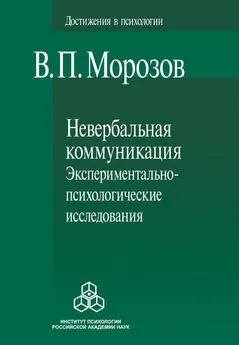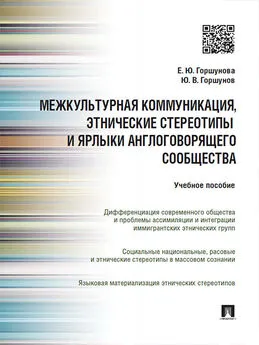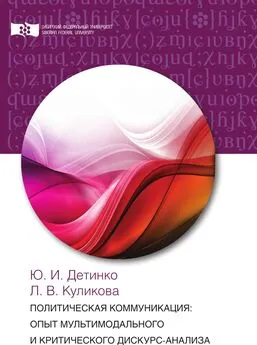Артемий Романов - Межпоколенческая коммуникация
- Название:Межпоколенческая коммуникация
- Автор:
- Жанр:
- Издательство:Книжный дом «ЛИБРОКОМ»
- Год:2009
- Город:Москва
- ISBN:нет данных
- Рейтинг:
- Избранное:Добавить в избранное
-
Отзывы:
-
Ваша оценка:
Артемий Романов - Межпоколенческая коммуникация краткое содержание
Впервые на русском языке приводится подробный анализ факторов, которые влияют на межпоколенческую коммуникацию внутри и вне семьи. Читатель познакомится с результатами проведенных автором социолингвистических опросов, проливающих свет на коммуникативное поведение россиян и их восприятие общения с людьми разного возраста. В работе приводятся многочисленные примеры общения между поколениями, как внутри семьи: между родителями и детьми, бабушками, дедушками и их внуками, тещами и зятьями, свекровями и невестка ми; так и вне семейного круга. Предлагаются практические рекомендации и советы, позволяющие решать задачи повышения уровня эффективности коммуникации между представителями разных поколений.
Книга адресована специалистам, интересующимся проблемами социолингвистики и речевой коммуникации, студентам, аспирантам и преподавателям вузов, социальным работникам и всем, чья профессиональная или общественная деятельность связана с коммуникацией между людьми разного возраста.
Межпоколенческая коммуникация - читать онлайн бесплатно полную версию (весь текст целиком)
Интервал:
Закладка:
Jones, S., Nissenson, M. Friends for Life. New York: William Morrow, 1997.
Jordan, J. The relational self: A model of women’s development. In J. Van Mens Verhulst, J. Schreurs, L. Woertman ( Fds), Daughtering and Mothering: Female Subjectivity Reanalyzed. New York, Routledge, 1993, 135-144.
Juby, H., Farrington, D. Distinguishing the link between disrupted families and delinquency. British Journal of Criminology, 2001, 41, 22-40.
Karasik, R., Maddox, M., Wallingford, M. Intergenerational service-learning across levels and disciplines: One size (does not) fit all. Gerontology & Geriatrics Education, 2004, 25, 1, 1-17.
Karasik, R., Wallingford, M., Finding community: Developing and maintaining effective intergenerational service-learning partnerships. Educational Gerontology, 2007, 33,9, 775-793.
Karp, D., Yoels, W. Experiencing the Life Cycle: A Social Psychology of Aging. Springfield, IL: 1982.
Kemper, S. Constraints on Language: Aging, Grammar and Memory. Boston: Kluwer Academic Publishers, 1999.
Kennedy, G E. Quality in grandparent/grandchild relationships. International Journal of Aging and Human Development, 1992, 35, 83-98.
Kim, U. Individualism and collectivism. Conceptual clarification and elaboration. In U. Kim, H. Triandis, C. Kagitcibais, S.-C. Choi, G Yoon (Eds.), Individualism and Collectivism: Theory, Method, and Applications. Thousand Oaks, C A: Sage, 1994, 19-40.
King, V., The legacy of grandparent’s divorce: Consequences for ties between grandparents and grandchildren. Journal of Marriage and the Family, 2003, 65, 170-183.
Kite, M., Johnson, B. Attitudes toward older and younger adults: A meta-analysis. Psychology and Aging, 1988, 3, 233-244.
Klinger, Е., Bierbraver, G. Acculturation and conflict regulation of Turkish immigrants in Germany: a social influence perspective. In W. Wosinska, R. Cialdini, D. Barret, J. Reykowski (Eds.). The Practice of Social Influence in Multiple Cultures. Mahwah, NJ: Lawrence Erlbaum, 2001.
Kraus, S. On adult daughters and their mothers: A peripatetic consideration of developmental tasks. Journal of Feminist Family Therapy, 1989,1, 27-35.
Kreider, R., Simmons, T. Marital status: 2000. Washington, DC: Bureau of the Census, 2003.
Labov, W. Principles of Linguistic Change: Internal Factors. Oxford: Blackwell, 1994.
Langellier, K. Performing family stories, forming cultural identity: Franco American Memere stories. Communication Studies. 2002, 53, 56-73.
La Tourette, T., Meeks, S. Perceptions of patronizing speech by older women in nursing homes and in the community. Journal of Language and Social Psychology, 2000, 19,4,463-473.
Laursen, B. Conflict and Social Interaction in Adolescent Relationships. Journal of Research on Adolescence. 1995, 5, 55-70.
Lawton, L., Silverstein, M., Bengston, V. Solidarity between generations in families. In V. L. Bengston & R. A. Harootyan (Eds.), Intergenerational Linkages: Hidden Connections in American Society. New York: Springer, 1994,19-42.
Leaper, C., Anderson, K., Sanders, P. Moderators of gender effects on parent’s talk to their children: A meta-analysis. Developmental Psychology. 1998, 34, 3-27.
Leary, M., Kowalski, R. Social Anxiety, New York: Guiford Press, 1995.
LeBlanc, B. La paradis avant la fin de vos jours: les raisons socials des maisons dhebergement au Canada. Onomastica Canadiana, 2003, 85, 2, 89-98.
Levin, J., Levin, W. Ageism: Prejudice and Discrimination against the Elderly. Belmont, CA: Wadsworth, 1980.
Lin, G, Rogerson, P. Elderly parents and geographic availability of their children. Research on Aging. 1995, 17,303-331.
Lin, M., Harwood, J. Accomodation predictors of grandparent-grandchild relational solidarity in Taiwan. Journal of Social and Personal Relationships. 2003, 20, 537-563.
Lin, M., Harwood, J., Bonnesen, J. Conversation topics and communication satisfaction in grandparent-grandchild relationships. Journal of Language and Social Psychology, 2002, 21, 3, 302-323.
Lundgren, D., Rudawsky, D. Speaking one’s mind or biting one’s tongue: when do angered persons express or withhold feedback in transactions with male and female peers? Social Psychology Quarterly, 2000, 63, 253-63.
Marchese, J. Renovations: A Father and Son Rebuild a House and Rediscover Each Other. New York: Riverhead Books, 2002.
McCrea, J., Nichols, A., Newman, S. Intergenerational Service-Learning in Gerontology. Pittsburgh, PA: University of Pittsburgh: Generations Together (AGHE), 2000.
McKeen, W., McKeen, G Highway 61: A Father and Son Journey through the Middle of America. New York: Norton, 2003.
Miller-Day, M. Communication among Grandmothers, Mothers, and Adult Daughters: A Qualitative Study of Maternal Relationships. Mahwah, NJ: Lawrence Erlbaum Associates, 2004.
Miller-Rassulo, M. The mother-daughter relationship: Narrative as a path to understanding. Womens Studies in Communication, 1992, 15, 1-21.
Mitzner, T., Kemper, S. Oral and written language in late adulthood: Findings from the Nun Study. Experimental Aging Research, 2003, 29,4, 457-474.
Morgan, G, Griego, O. Easy Use and Interpretation of SPSS for Windows. Mahwah, NJ: Lawrence Erlbaum, 1998.
Morgan, M., Floyd, K. The good son: Men’s perceptions of the characteristics of sonhood. In M. Morgan & K. Floyd (Eds.), Widening the Family Circle. New Research on Family Communication. London: Sage, 2006, 37-55.
Nagasawa, R. The Elderly Chinese: A Forgotten Minority. Chicago, IL: Pacific Asian American. 1980.
Ng, S., Liu, J., Weatherall, A., Loong., C. Younger adult’s communication experiences and contact with elders and peers. Human Communication Research, 1997, 24, 1, 82-108.
Ng, S. Social psychology in an ageing world: Ageism and intergenerational relations. Asian Journal of Social Psychology, 1998, 1,99-116.
Neurgarten, B., Weinstein, K. The changing American grandparent. Journal of Marriage and the Family. 1964,26, 199-204.
Nussbaum, J., Bettini, L. Shared stories of the grandparent-grandchildren relationship. International Journal of Aging and Human Development, 1994, 39, 67-80.
Nussbaum, J., Coupland, J. Handbook of Communication and Aging Research. Mahwah, NJ: Lawrence Erlbaum Associates: 1995.
Omarzu, J. Disclosure decision model: determining how and when individuals will self-disclose. Personality and Social Psychology Review. 2000, 4, 174-185.
Palmore, E. D. Ageism, Negative and Positive. New York: Springfield, 1990.
Park, M., Kim, M. Communication practices in Korea. Communication Quarterly, 1992, 40, 398,04.
Pearlman, V., Wallingford, M. Intergenerational wellness programming in occupational therapy. Journal of Intergenerational Relations, 2003, 1,2, 67-78.
Pecchioni, L., Croghan, J., Young adult’s stereotypes of older adults with their grandparents as the targets. Journal of Communication, 2002, 52, 715-730.
Pensions Commission Report, http://news.bbc.co.Uk/2/hi/business/4484226.stm
Peters, H., Day, R. (Eds.) Fatherhood: Research, Interventions, and Policies. Marriage and the Family Review, 2000, 29, 1-322.
Petronio, S. Boundaries of Privacy. Dialectics of Disclosure. Albany, NY: State University of New York Press, 2002.
Pettigrew, Т., Tropp, L. Does intergroup contact reduce prejudice: Recent metaanalytical findings. In S. Oskamp (Ed.) Reducing Prejudice and Discrimination. Hillsdale, NJ: Erlbaum, 2000, 93-114.
Pleck, J., Masciadrelli, B. Paternal involvement by U.S. residential fathers: Levels, sources, and consequences. In M. E. Lamd (Ed.), The Role of the Father in Child Development. New York: Wiley, 2004,222-271.
Plummer, W. Wishing My Father Well: A Memoir of Fathers, Sons, and Fly Fishing. New York: Everlook Press, 2000.
Pollock, S. Examination and Comparison of Oral and Written Language Production among Normal Aging Individuals. Columbus, OH: Ohio State University, 2002.
Popov, N. The Russian People Speak. Democracy at the Crossroads. Syracuse: Syracuse University Press, 1995.
Raffaelli, M., Green, S. Parent-adolescent communication about sex: Retrospective reports by Latino college students. Journal of Marriage and the Family, 2003, 65, 474—495.
Reed, V., McLeod, K., McAllister, L. Importance of selected communication skills for talking with peers and teachers: Adolescent’s opinion. Language, Speech and Hearing Services in Schools. 1999, 30, 32-49.
Riggio, H., Desrochers, S. Maternal employment and the work and family attitudes and expectations of young adults. In D. Halpem & S. Murphy (Eds.), From Work-Family Balance to Work-Family Interaction: Changing the Metaphor. Mahwah, NJ: Lawrence Erlbaum Associates, 2004, 202-238.
Roberto, K., Stroes, J. Grandchildren and grandparents: Roles, influences, and relationships. International Journal of Aging and Human Development, 1992, 34, 227-239.
RolofF, M. Interpersonal Communication. The Social Exchange Approach. Newbury Park, CA: Sage, 1981.
Roloff, M. Communications and reciprocity within intimate relationships. In M. E. Roloff & C. R. Berger (Eds.), Interpersonal Processes. New Directions in Communication Research. Newbury Park, CA: Sage, 1987: 11-38.
Rosenfeld, L. Overview of the ways privacy, secrecy, and disclosure are balanced in today’s society. In S. Petronio (Ed.) Balancing the Secrets of Private Disclosures. Mahwah, NJ: Lawrence Erlbaum Associates, 2000, 3-19.
Ruscher, J., Hurley, M. Off-target verbosity evokes negative stereotypes of older adults . Journal of Language and Social Psychology. 2000, 19, 1, 141-149.
Ryan, E., Giles, H., Bartolucci, G, Henwood, K. Psychological and social psychological components of communication by and with the elderly. Language and Communication, 1986, 6,1-24.
Ryan, E., Cole R. Evaluative perceptions of interpersonal communication with elders. In H. Giles, N. Coupland, & J. Wiemann (Eds.), Communication, Health and the Elderly, Manchester: Manchester University Press, 172-190.
Ryan, E., Hummert, M., Boich, L. Communication predicament of aging: patronizing behavior toward older adults. Journal of Language and Social Psychology, 1995, 14, 1-2, 144-166.
Schaie, К. Ageist language in psychological research. American Psychologist, 1993, 48, 49-51.
Segrin, C. Age moderates the relationship between social support and psychological problems. Human Communication Research, 2003, 29, 3, 317-342.
Serewicz, M. Getting along with the in-laws: relationships with parents-in-law, In K. Flaoyd, M. Morman (Eds.), Widening the Family Circle. New Research on Family Communication. Thousand Oaks, CA: Sage, 2006,101-117.
Shenitz, B., Holleran, A. The Man I Might Become: Gay Men Write about Their Fathers. New York: Marlowe, 2002.
Sher, A., Aging in Post-Mao China: The Politics of Veneration. Boulder, CO: Westview, 1984.
Singer, A., Weinstein, R. Differential paternal treatment predicts achievement and self-perception in two cultural contexts. Journal of Family Psychology, 2000, 14, 491-509.
Somary, K., Strieker, G Becoming a grandparent: A longitudinal study of expectations and early experiences as a function of sex and lineage. The Gerontologist. 1998, 38,53-61.
Читать дальшеИнтервал:
Закладка:










